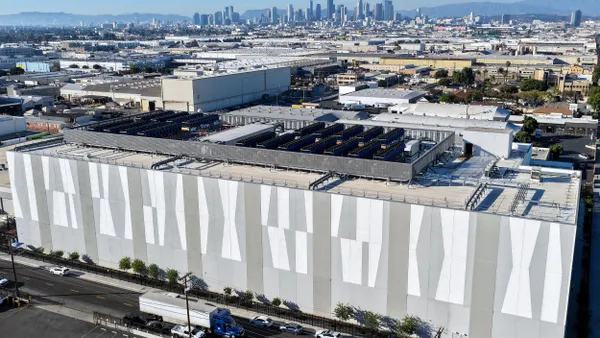Dive Brief:
-
Two utility interest groups have raised protests against Southern California Edison's (SCE) proposed $760 million plan to expand its electric vehicle (EV) infrastructure to California's Public Utilities Commission (PUC).
-
The Utility Reform Network (TURN) and Small Business Utility Advocates (SBUA) are challenging SCE's proposal on the grounds that the utility is putting too much of the burden on ratepayers and not considering the small business market.
-
TURN notes that the utility is incurring around 90% of the project's costs on consumers unnecessarily, particularly low-to-middle income (LMI) customers, in violation of Senate Bill 350, which outlines, in part, the California's Public Utilities Commission's commitment to "minimize impacts on ratepayers' bills." The network proposes utilities should place more of the costs, particularly those related to infrastructure, on large corporation site hosts.
Dive Insight:
As EVs grow more attractive to utilities due to falling costs and emissions reduction, more and more are rolling out ambitious plans to increase EV adoption. California has been particularly ambitious.
According to the 2017 50 States of Electric Vehicles report, California and New York were the most active states in terms of action on EVs and charging stations, with California having the highest number of actions related to market development, incentives and deployment.
However, TURN and SBUA maintain SCE is not doing enough to consider a portion of its customer base: small businesses and ratepayers.
The utility's proposal is a "gravy train for shareholders" rather than an "effort that's going to bear fruit for communities," Mindy Spatt, communications chief of TURN, told Utility Dive. She said SCE should be more inclusive to LMI ratepayers.
Less than a third of the proposed EV deployments will be going to disadvantaged communities (DAC), even though SCE's pilot program successfully achieved 50% DAC-siting.
LMI customers have unequal access to EVs, according to a report released by Sierra Club and Plug In America. Many states have made legislative efforts to increase affordability of the technology, including tax-funded rebates.
SBUA's concerns are directed more at a lack of consideration to small businesses as ratepayers and as a portion of the market, asserting the utility should consider clear and predictable rates, diverse sites for host selection and lower numbers of site chargers at small business sites.














